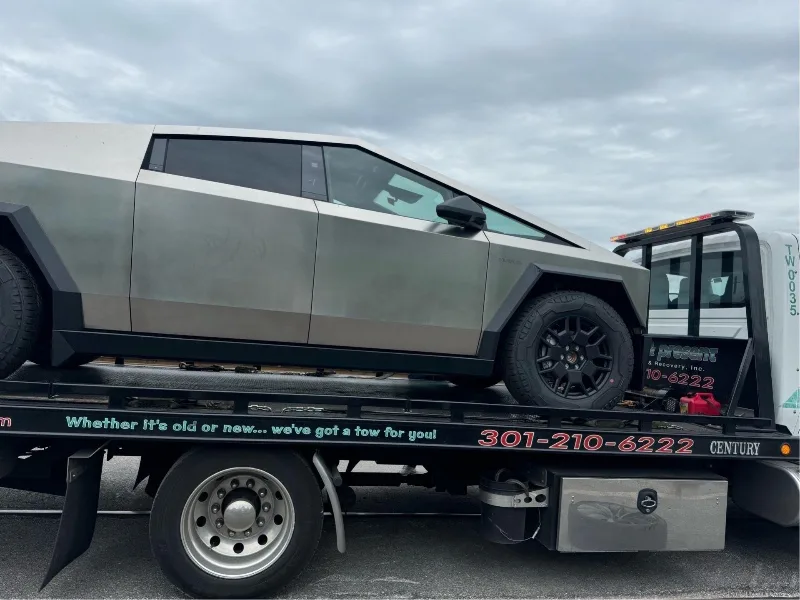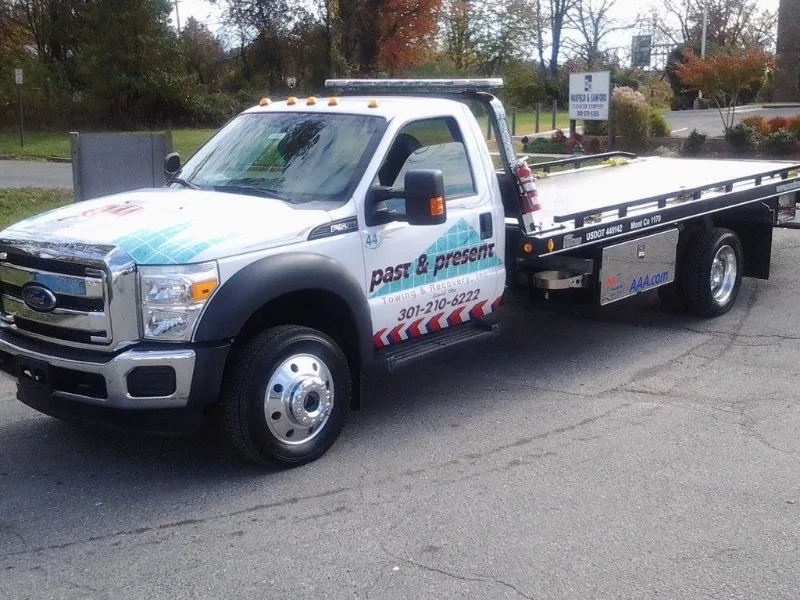Electric Vehicles Bring New Challenges
As electric vehicles roll into more driveways, we’re getting more calls for EV towing. But this isn’t just another car with a dead battery or a flat tire. EVs come with unique needs—ones that could lead to major damage if handled the wrong way. That’s why we take a different approach when responding to a Laurel EV towing request.
We’ve learned over time that there’s no shortcut when towing an electric vehicle. From battery placement to drive systems, every step matters more than you might expect.

Why EVs Can’t Be Towed Like Traditional Cars
One of the biggest misconceptions is that any tow truck can handle an EV. That’s not the case.
Let’s break down a few things that make EV towing a different animal:
Regenerative Braking Systems
Electric vehicles often come with regenerative braking systems. These setups feed energy back to the battery when the car slows down. That sounds smart—and it is—but it also complicates towing. If the wheels are allowed to spin while the vehicle’s off, the system could push power into the battery when it’s not ready for it. That can cause damage, overheating, or worse.
No True Neutral Gear
In a gas-powered car, we can shift into neutral and tow with the wheels on the ground—no big deal. But most EVs don’t have a “neutral” in the traditional sense. Trying to drag them along could force the electric motors to turn without power, leading to mechanical damage inside the drivetrain.
Battery Location and Ground Clearance
EVs are typically lower to the ground and have their batteries mounted underneath. That means loading them onto a flatbed takes extra care. Scraping the bottom can ruin the battery casing—something no driver wants to hear from their insurance adjuster.
Our Step-by-Step EV Towing Process
When we’re handling a Laurel EV towing job, here’s how we make sure it’s done right:
- We check for tow hook access points. Every EV has specific tow points. We make sure we’re using the right ones to avoid panel or chassis damage.
- We secure with soft straps. Metal chains can cause scratches or stress to delicate undercarriages. We use straps that hold firm but treat your car with care.
- We consult manufacturer guidance. Towing methods vary across brands like Tesla, Rivian, or Nissan Leaf. We check the specs to get it right every time.
- We never rush the load-up. Getting it on and off the truck safely takes patience—especially in low-clearance situations.
Common Reasons We Tow EVs
EV owners call us for a bunch of reasons. Some are the same as with any vehicle, but others are more specific to electric models:
- Battery depletion (ran out of charge)
- Charging system issues
- Collision damage
- Software malfunctions that disable the vehicle
- Flat tires (EVs often lack spares)
- Roadside recovery in winter (batteries don’t love the cold)
What EV Owners Should Know Before Calling
If you’re stuck and looking for Laurel EV towing, keep a few things in mind:
- Don’t try to move your EV yourself. That could trigger the braking or motor systems.
- Let us know your car make and model. We’ll bring the right gear.
- Stay clear of the vehicle’s underbody if you suspect damage—it’s where the high-voltage battery lives.

Past & Present Towing: Our Laurel EV Towing Service Keeps Drivers Moving
We know the frustration of being stranded, especially when driving a car that’s supposed to be the future of transportation. EVs may be quiet and cutting-edge, but they still need a little help now and then. Laurel EV towing isn’t just part of our job—it’s a growing part of how we serve the community.
Our Laurel EV towing team is here when your range runs out or a sensor goes haywire. And more importantly, we know what it takes to move your EV the right way. Because this isn’t just towing—it’s Laurel EV towing with the future in mind. And we’re ready for it.

